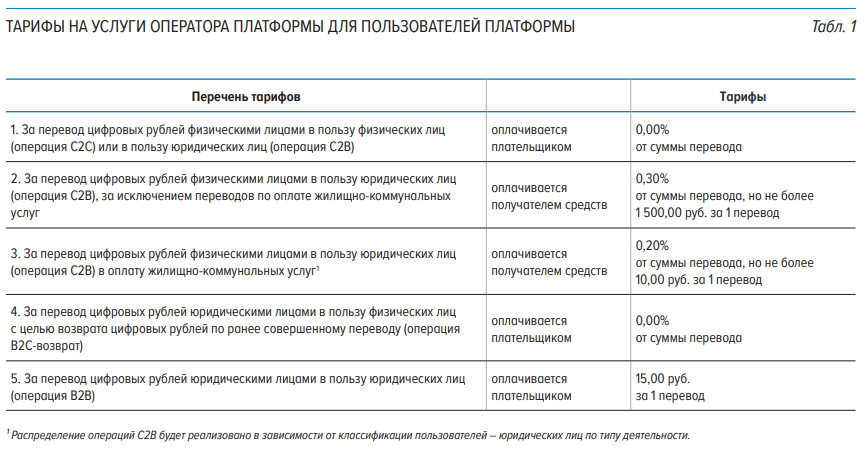Even as Russia gears up to launch its digital ruble, some of the country’s top bankers are scratching their heads and saying, “What’s the point?”
As Russia inches closer to unveiling its own digital currency, the chorus of skepticism is growing louder. And here’s the kicker: these doubts aren’t coming from critics abroad, but from within the country’s own financial elite. 🤯
One of the loudest voices of doubt belongs to one of the most influential bankers in Russia.
German Gref, the CEO of Russia’s largest state-controlled lender Sberbank, reportedly told reporters at the Bank of Russia’s annual Financial Congress, “Our finances are already fully digital. Everything the digital ruble can offer is already provided by cashless payments. Our banks are more technologically advanced than a room full of tech nerds at a Star Trek convention. I don’t see a single new product that couldn’t be done with the regular ruble.”
“Our finances are already fully digital. Everything the digital ruble can offer is already provided by cashless payments. Our banks are more than technologically advanced enough. I don’t see a single new product that couldn’t be done with the regular ruble.”
German Gref
Gref’s comments are a big deal, especially since he leads Sberbank, which is like the financial backbone of Russia, boasting over 100 million clients, or nearly 69% of the country’s population. And guess what? Sberbank is supposed to play a central role in launching the digital ruble. 🤔
But the Bank of Russia isn’t buying it. They argue that the digital ruble, as a third form of national currency alongside cash and cashless money, could bring huge benefits over time. In their recent research report, they highlighted several potential perks: faster, more transparent, and more secure financial transactions. However, these advantages seem to benefit the authorities more than the average Joe, as the digital ruble primarily offers new tools for state-level financial management and expanding financial inclusion. 🤷♂️
Russia already has a solid digital payment setup, with its own versions of Visa/Mastercard and some pretty advanced mobile banking apps. So, from a user’s point of view, it’s still not clear why anyone would really care to switch to a new payment method. 🤷♂️
Cashbacks, but for lenders
Still, the Bank of Russia continues to highlight what it sees as long-term benefits. They plan to begin mass adoption of the digital ruble on September 1, 2026, and expect the system to become a regular part of financial life within five to seven years. 🤞
To make the digital ruble more appealing — especially for everyday users — the central bank is waiving all fees on transfers between individuals. Businesses still have to pay commissions, but they’re lower than what current payment systems or card services charge. 🤑

For example, sending money from a private user to a business comes with a max fee of 1,500 rubles (around $19) or 0.3% of the transfer amount. Utility payments cost even less, capped at 10 rubles or 0.2%. 🤑
The central bank also offers incentives to banks and other participants helping to operate the digital ruble platform. These partners will receive small commissions for facilitating various types of transactions, although the amounts are tightly regulated. Payments are made in digital rubles and handled directly through the platform’s centralized accounting system. 🤑
Long shot
The Bank of Russia insists this is about the future. The digital ruble isn’t just another payment tool, they say, emphasizing that it’s a step toward a more modern and flexible financial system. Officials believe the platform could make government payments more efficient, help track public funds more transparently, and even pave the way for new types of smart contracts and automation in finance. 🤔
But the Sberbank CEO isn’t convinced, at least not yet. There’s still time for the picture to shift. 🤷♂️
The pilot phase for the digital ruble has been ongoing since August 2023, and more functionality is being tested gradually. Some might suggest that the real value of the digital ruble may only become apparent as international payment systems become more fragmented, and Russia seeks new tools to bypass sanctions and simplify trade with select foreign partners. 🤷♂️
In that scenario, the digital ruble might not change everyday life for most Russians, but could still become a useful instrument for the state. One way or another, the Bank of Russia appears determined to stay the course, even as some of the country’s most powerful bankers openly question what it’s all for. 🤷♂️
Read More
- Silver Rate Forecast
- ADA’s Desperate Hug: 3 Signs It Won’t Kiss $0.45 Goodbye 💸
- Bored Rich Men and Fickle Fortunes: Bitcoin’s Latest Dance with Destiny (and Whales)
- Gold Rate Forecast
- Brent Oil Forecast
- Bitcoin’s Next Move Will SHOCK You! $85K or $83K?
- Why Switzerland’s Bank Said “No Thanks” to Bitcoin (And Probably Enjoys Paper Money More)
- OMG! Altcoin Buybacks Are Wilder Than Your Aunt’s Stock Tips! 😱
- Crypto Chaos: Powell Holds the Keys! 🔑
- EUR MXN PREDICTION
2025-07-07 14:26